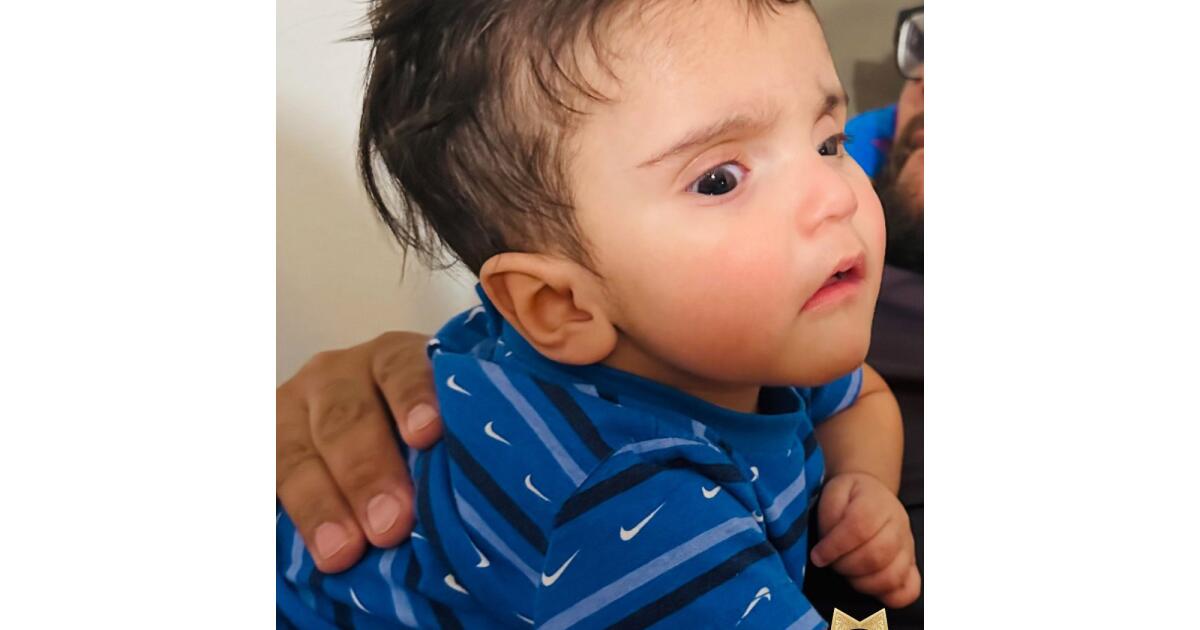In recent headlines, the distressing case of a missing 7-month-old boy, Emmanuel Haro, from Yucaipa, California, has captured public attention. Details surrounding his disappearance are perplexing and highlight the complexities of family dynamics, law enforcement procedures, and the challenges of media coverage during such critical situations.
Background of the Case
Emmanuel Haro was reported missing on a Thursday, under circumstances that raised alarm. His mother, Rebecca Haro, claimed that she was attacked in a parking lot and subsequently lost consciousness, only to find her son missing upon regaining awareness. The San Bernardino County Sheriff’s Department has characterized the situation as suspicious, indicating that they cannot dismiss foul play; however, no suspects have been named publicly.
Law enforcement’s initial response included searches of the area, and investigators quickly turned their focus toward the Haro family’s home in Cabazon. Contradictory statements emerged from Rebecca concerning her recollection of events, which prompted authorities to express concerns over her, and the family’s, cooperation.
Communication Breakdown and Legal Representation
Despite claims from investigators that the family had ceased communication, attorney Vincent Hughes, representing the boy’s father Jake Haro, refuted this narrative. According to Hughes, both parents are still cooperating with the investigation, albeit under strained circumstances. Notably, Rebecca Haro declined to undergo a polygraph test commonly requested by law enforcement. Hughes defended her decision by suggesting that polygraphs are scientifically contentious and often inadmissible in court.
This aspect raises profound questions about the expectations placed on individuals in high-stress situations, such as the disappearance of a child. Hughes emphasized that every individual’s emotional response is unique, particularly in cases as harrowing as this.
Investigative Details and Parental Background
Law enforcement noted inconsistencies in Rebecca’s statements during her interviews, leading to a temporary halt in communications. Hughes claimed that the Sheriff’s Department’s statements were vague, and the lack of updates regarding Emmanuel’s case has left the parents feeling isolated amid intense scrutiny.
Jake Haro, while having a criminal history relating to child cruelty in a separate case involving another child, asserts that such past offenses do not inherently implicate him or Rebecca in their son’s disappearance. Hughes highlighted this distinction, arguing for a more nuanced understanding of the situation rather than painting the couple with a broad brush due to prior convictions.
Family Dynamics and Community Reaction
The emotional turmoil experienced by the Haro family has been compounded by their public portrayal. Family members, advocates, and community members often have sharp and conflicting opinions about how parents should react during crises like this. The case has drawn comparisons to infamous child disappearance cases, underscoring societal anxieties surrounding parenting and culpability.
Jake and Rebecca Haro have reportedly surrendered their phones for analysis and allowed investigators access to their home, reflecting their purported willingness to assist in the investigation. Hughes has maintained that they are staying at the family residence out of concern for their safety and not as an indication of guilt.
Search Efforts and Ongoing Investigation
As the search for Emmanuel continues, the Sheriff’s Department remains active in their investigation. Multiple search warrants have been executed at the family’s residence, and authorities are reviewing surveillance footage to glean potential leads. This aspect of the investigation illustrates the complexities inherent in modern forensic techniques and the role of technology in solving cases of this nature.
Authorities have yet to issue a missing person’s flyer for Emmanuel, which has drawn further concern and speculation. In the digital age, timely dissemination of information can significantly impact community engagement in search efforts. The slow rollout of information may contribute to the public’s growing impatience and speculation regarding the disappearance.
Conclusion: A Call for Understanding and Support
The case of Emmanuel Haro’s disappearance is marked by a sense of helplessness and sorrow—a poignant reminder of the fragility of life and the struggles faced by families in distressing circumstances. Emphasizing thorough investigative procedures while balancing the emotional well-being of those involved remains pivotal in cases like this.
As the investigation unfolds, it’s essential for the community and the media to approach the Haro family’s situation with empathy and a recognition of the complexities surrounding their experiences. The emotional well-being of both parents should not be overshadowed by the public’s desire for resolution, and undue scrutiny can have lasting ramifications on mental health and familial structures.
Ultimately, the search for Emmanuel Haro continues, and it reminds us all of the urgent need for community vigilance and support in the face of uncertainty. The hopes for his safe return rest not only with law enforcement but also through the compassion of the public. As developments arise, it is vital to engage in the conversation with care, acknowledging the human elements at play far beyond the headlines.










